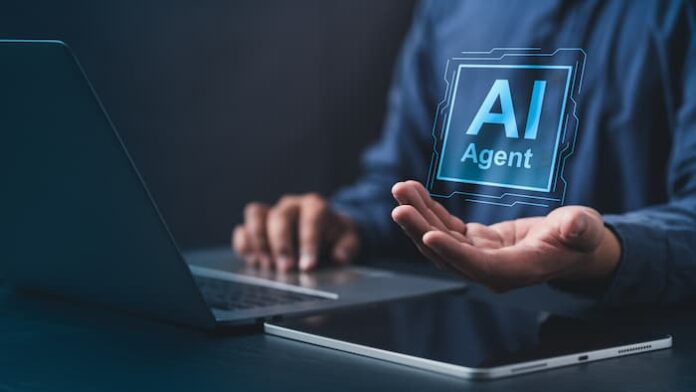Agentic AI in HR is the latest AI development, creating a lot of buzz. A May 2025 Gartner survey found that 82% of HR leaders plan to implement some form of agentic AI capabilities, ranging from AI assistants to AI agents, within the next 12 months. By 2030, Gartner estimates that 50% of current HR activities will be AI-automated or performed by AI agents, fundamentally transforming HR’s work, roles and workflows.
HR leaders are feeling pressure to leverage the latest AI developments to improve efficiency and drive business outcomes; however, there is a lot of uncertainty about what agentic AI is, what its capabilities are and what solutions are delivering a return on investment.
AI assistants vs. AI agents vs. agentic AI
Most HR leaders are familiar with AI assistants—specialized applications in a wider system that incorporates AI techniques to carry out tasks as requested by a human through a conversational interface. Different from assistants, AI agents are autonomous or semiautonomous software entities that leverage AI techniques to perceive their environment, make decisions, take actions on behalf of users and achieve goals within digital or physical settings. Agentic AI, often used interchangeably with AI agents, refers to the broader approach of building AI solutions using software that classifies completely or partially as AI agents.
While AI assistants can respond to prompts and inputs, AI agents take initiative by planning, acting and adapting to changes. The spectrum of AI agent capabilities is defined by the degree of “agency” they have:
- Low-agency systems perform simple, specific tasks, primarily under human supervision
- High-agency systems perform more adaptive, complex tasks with greater autonomy, and have the right to act on behalf of an organization.
As the hype and confusion grow around agentic AI in HR, vendors are using the opportunity to rebrand their existing virtual assistant and chatbot products as agentic AI to capture buyers’ attention. These products are primarily designed to rely on human feedback and interaction and do not offer substantial agentic capabilities, creating false expectations about the technology’s maturity and what it can achieve.
However, many technology vendors are working to build AI agents that will progressively gain the ability to plan, make decisions and act on behalf of users. In the meantime, HR leaders must distinguish genuine value from vendors’ “agentic AI-washing.”
Recruiting: a prime space for agentic AI disruption
Recruiting is emerging as a key area of HR offering the most promise for agentic AI. AI agents are starting to transform talent acquisition by streamlining candidate sourcing, automating initial screening and improving the hiring experience. By 2028, Gartner predicts that 30% of recruitment teams will rely on AI agents for high-volume hiring and early-stage recruitment tasks.
To maximize benefits, organizations must understand both the limitations and capabilities of agentic AI to create a more personalized candidate journey while navigating the ongoing hype. Optimism remains high; two-thirds of HR leaders who participated in the same May 2025 survey stated that they trusted AI agents would take actions that would benefit employee experience.
AI agents are already utilizing requisition and resume data to match candidates, while AI interviewer agents analyze interview transcripts and job requirements, offering best-fit insights before a human decides on the progression of the candidate. Soon, recruitment agents will source candidates via skills analysis, and then schedule, screen and progress candidates to the next stage. In the future, a virtual recruiter will identify the top candidates, create and issue offers, and manage preboarding while adapting via employee retention and performance data.
AI agents across the enterprise
AI agents’ strength lies in their ability to adaptively plan a series of tasks tailored to specific situations, a capability that traditional automation tools outside of AI cannot achieve due to their reliance on pre-determined steps. This means that AI agents deliver their greatest impact when a process can benefit from automation, but where the tasks or environments are too dynamic and unpredictable for traditional automation.
Across the enterprise, new AI agent use cases are emerging. For example, in sales, key repetitive tasks across text, voice and video—including crafting personalized emails, qualifying inbound leads and scheduling meetings—can be handled by AI agents. In customer service, AI agents will handle real-time advice, efficient ticket management, conversational recommendations and formal processes like password resets and order tracking. Meanwhile, in cybersecurity, AI agents will handle things like policy updates with new detection or enforcement rules and suggest vulnerability remediations after scans.
See also: An expert’s 5 pillars for successful AI in HR implementation
As business demand for handling complex tasks rises, individual AI agents will give way to multi-agent systems, which offer promising solutions but come with more implementation challenges. Despite vendor enthusiasm, enterprise adoption of multi-agent systems remains limited, underscoring the importance of starting with simpler, single-agent applications.
CHROs are key in shaping agentic AI’s impact on the workforce
AI agents are still an emerging trend, with most implementations in exploratory and pilot phases, but their potential for disruption remains large. In fact, HR leaders project agentic AI could replace, on average, 9% of their organization’s workforce within two years, according to a July 2025 Gartner benchmarking session.
While a lot remains to be seen, it’s clear agentic AI will change the way work gets done. In many parts of the enterprise, including HR, employees will move from executing workflows and delivering services themselves to building and maintaining agentic AI solutions that perform these tasks. This overhaul will redefine roles, require new skills and change how services are delivered. CHROs must work with business and IT leaders to assess the impact on roles, culture and organizational design, and ensure a human-centric approach to this transition.



